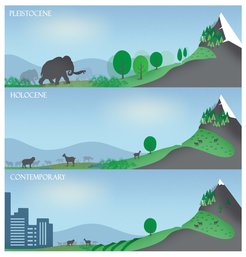Ecosystem Engineering Among Ancient Pastoralists in Northern Central Asia
Using a deep history approach that links ancient and contemporary societies, archaeologists from the Max Planck Institute of the Science of Human History (MPI-SHH) assess the ecosystem impacts of pastoralism in northern Central Asia.

Archeology provides a unique perspective on context-specific pastoral responses and impacts, as demonstrated through detailed localized datasets on long-term pastoral and grazing behaviors examined in a new study published in Frontiers in Earth Science. These ecological impacts extend from time periods when pastoralism was a relatively novel component of local ecologies and involved limited population densities through to periods in which it became intensive, coincident with agriculture, and linked to increased sedentism. The authors draw upon these findings to examine the challenges faced by pastoralists today, and the ways in which archeological data might inform on management decisions into the future.
